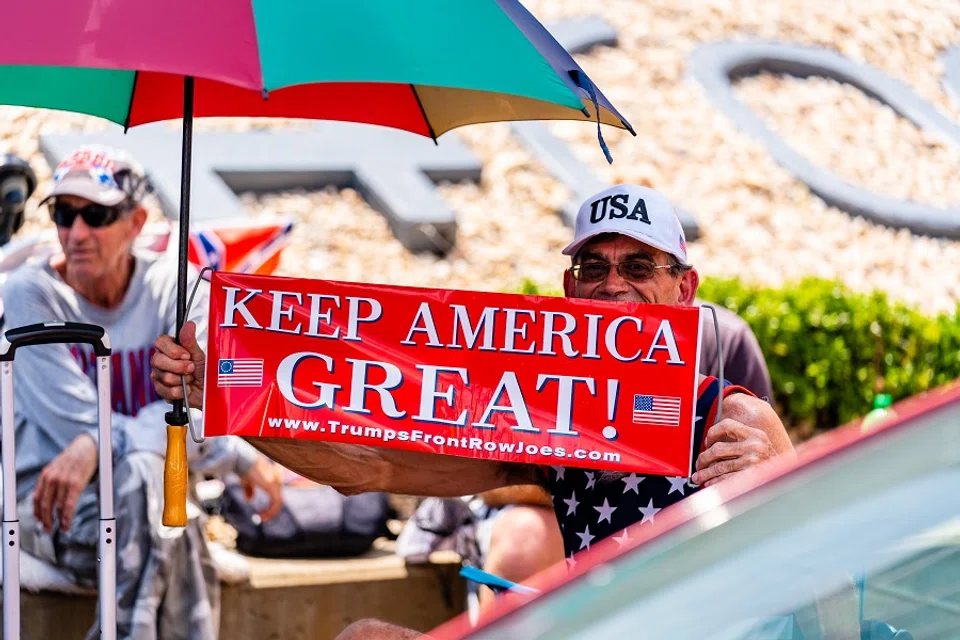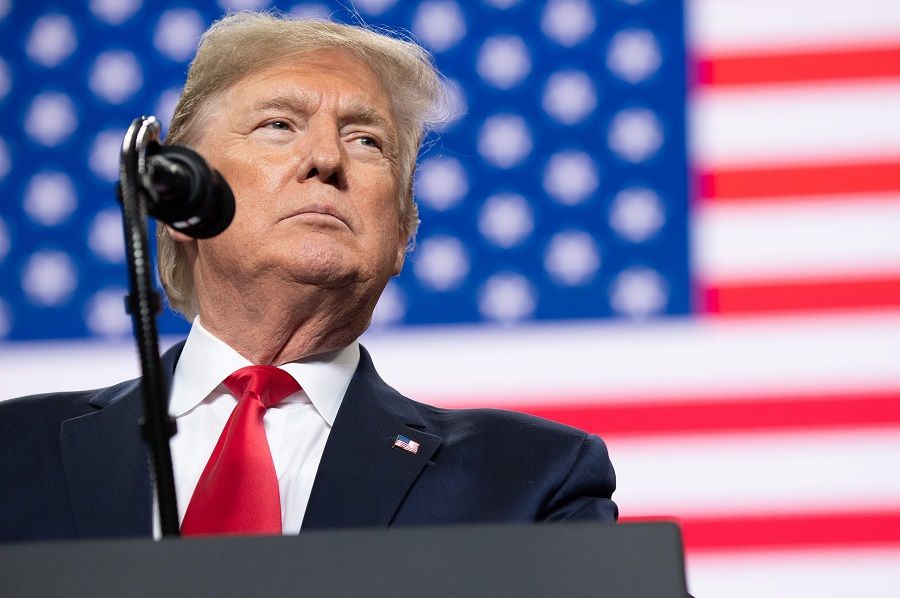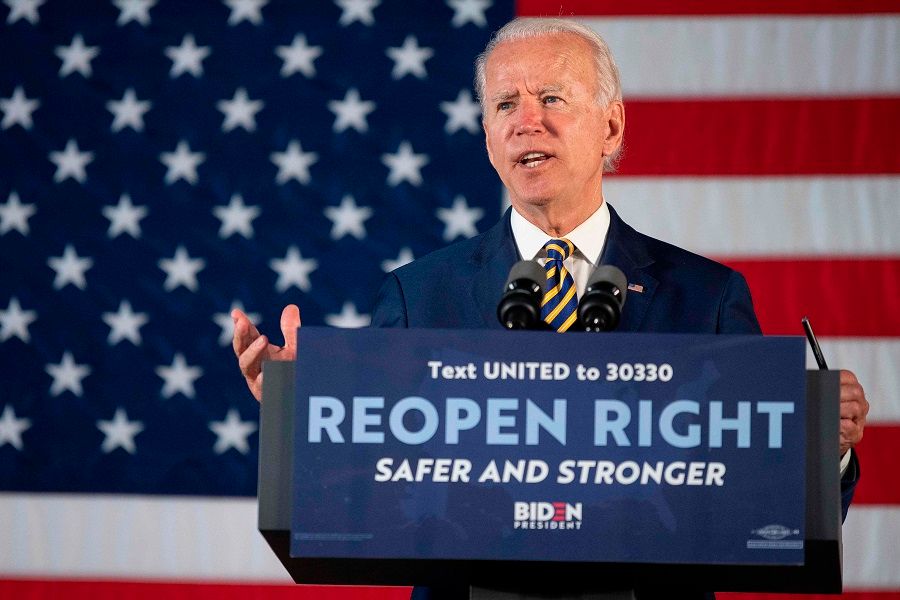China's preferred choice: Trump or Biden?

The alarming rise in Covid-19 cases in the US is not stopping US President Donald Trump from holding a presidential campaign rally tomorrow (20 June), his first in three months. This decision reveals the immense pressure that he is under to get re-elected. Recent opinion polls from various media show that Trump's approval ratings have fallen behind Democrat opponent Joe Biden's, in the wake of the administration's poor handling of the coronavirus crisis and a soaring domestic unemployment rate. Some opinion polls even predict that Biden will achieve a landslide victory in the upcoming presidential elections.
Although the presidential election is America's internal affair, as the US is the world's top major power, its next president and the future foreign policy decisions he makes will have far-reaching consequences for the rest of the world. Politicians, elites, and people from around the world are naturally concerned and anxious over it. Having experienced the changes in a Trump-led America over the past four years, many people are hoping that a new president would be elected, thereby allowing the US to reset its foreign policy. Europe has reportedly lost its confidence in Trump and is currently just "delaying time" and looking forward to new beginnings after the presidential elections are held in November.
The Europeans are reassessing America's competence as the world's leader after Covid-19, while their evaluation of China's capabilities seems to be improving. According to a joint survey by the Pew Research Center and German non-profit organisation Körber-Stiftung released in May, 37% of German respondents think that Germany's relations with the US are most important, while 36% believe that bilateral relations with China are most important instead. In the same survey conducted last year, the percentages stood at 50% and 24% respectively.
Some Chinese elites could possibly choose to put up with Trump for the same reasons that others want him replaced.

What about China? Are Chinese political and academic elites hoping to avoid crossing paths with Trump again in the next four years and instead wishing for a president from the Democratic Party who is probably more pragmatic and rational?
Toss-up between Biden and Trump not clear-cut
The answer is uncertain.
Some Chinese elites could possibly choose to put up with Trump for the same reasons that others want him replaced. Firstly, although Trump's trade war with China and ban on Huawei have created huge problems for China, China has persevered through both the trade and tech wars, demonstrating that Trump's coercive diplomatic moves against China have been ineffective. More importantly, a Trump-led US is constantly withdrawing from international organisations and heading towards isolationism. It is unwilling to safeguard the world order it established after the second world war and its domestic governance is also laden with problems. All these self-destructive actions have indirectly created strategic opportunities for China.
Yet, having such a person lead the US is not the worst that can happen as he symbolises and propels America's destruction.
During his speech at the United States Military Academy at West Point last weekend, Trump said, "It is not the duty of US troops to solve ancient conflicts in faraway lands that many people have never even heard of. We are not the policemen of the world." Some forces could be secretly pleased at hearing this.
On the other hand, former US national security adviser John Bolton claims in his forthcoming book that Trump mentioned his re-election in the context of trade negotiations with China and personally asked Chinese President Xi Jinping to help him win the re-election. These allegations further confirm the negative perceptions that some Chinese elites have of Trump, that he is selfish, has no sense of ideological issues, and only cares about money and his own re-election. Yet, having such a person lead the US is not the worst that can happen as he symbolises and propels America's destruction. On the contrary, it could be more dangerous if Biden becomes the next president as he is probably more rational and knows how to unite his allies to contain China.
"Chinese netizens call you 'Jianguo', meaning 'help to construct China'." - Global Times editor Hu Xijin

Chinese netizens' love for Trump can be seen in the nickname they have given him: "Trump Jianguo" (川建国, "Trump builds the nation"). This nickname came about from an incident in 2017 when Trump said in an interview that "Korea actually used to be a part of China". His claim triggered public backlash from Korea and "Trump Jianguo" was born.
Soon after, his initiation of a trade war and his damaging words and deeds to the reputation of the US democratic system made the moniker "Trump Jianguo" even more well-known and increasingly less of a mere joke. Last month, Global Times editor Hu Xijin said in a tweet targeted at Trump: "On the contrary, Chinese netizens wish for your reelection because you can make America eccentric and thus hateful for the world. You help promote unity in China and you also make intl news as fun as comedy." He even went on to explain: "Chinese netizens call you 'Jianguo', meaning 'help to construct China'."
As Obama's vice president, Biden has dealt with China before and has sought China's cooperation in issues like climate change and so on. If he becomes the next president, it is generally believed that China-US relations would be salvaged and that there would be some cooperation in certain areas. For example, the trade war could be paused and Biden would not withdraw from the World Health Organization. However, the amount of pressure that Biden would exert on China in areas such as human rights and intellectual property protection, as well as his demands for China to make changes in those areas, would not be small as well.
Looking ahead, there is only one direction that China-US relations are headed - downwards.

At the root of the issue, Chinese politicians and academics are clearly aware that China-US relations will continue to worsen. Looking ahead, there is only one direction that China-US relations are headed - downwards. The remaining questions concern the US's power and if it would rise again or continue heading downhill. Based on this logic, in a competition setting, would you hope that your opponent is strong and in top form, or would you wish that their coach is muddle-headed and their performance is not up to standard instead? To this question, confident participants often hope for strong and powerful opponents who can push them to perform their best at the competition.
What kind of competitor does Chinese politicians and academics wish to see? While economic and international strategy elites each hold different views, generally speaking, everyone is in a dilemma. With American domestic opinion polls showing that Biden's approval ratings are on the rise, I believe that China would also prepare itself for it.
To the third party, regardless of who is leading the US and China, the world wishes to see a fair fight between the major powers, and leaders who can jointly shoulder their international responsibility in a world full of uncertainties, and in the process, demonstrate who is more qualified to lead the world.
Related: China and America: The power of historical memory | Will China and the US fight another wrong war, with the wrong enemy, at the wrong place and time? | Ray Dalio at the China Development Forum: What can history tell us about the rise of China? | How could democracy yield a leader like Trump?
